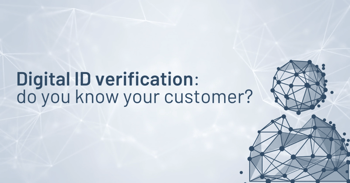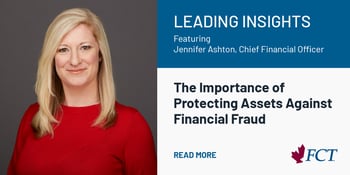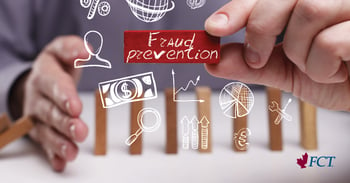
For most of us, the holidays are the season of giving, but fraudsters see it as the season of taking. Technology gives criminals new ways to steal their targets’ gifts, money, and even their identities. Identity theft and fraud are on the rise, and getting more sophisticated thanks to AI and other tools. Staying informed has never been more important—keep ahead of the fraudsters by brushing up on these holiday season scams:
Title fraud
Title fraud is when a criminal poses as the owner of a property in order to take out a mortgage on it or sell it to an innocent buyer. The true owner of the property is left facing a long and expensive process to have their title restored. Until it is, they can’t sell their property or use their home equity.
The holidays are a surprisingly well-suited time for title fraud: fraudsters often like to submit their requests at times when they hope legal professionals will be distracted.
Protecting your identity and ID documents is always important, and if you own or are buying a home, make sure to get the most effective fraud protection: a title insurance policy. Make sure to check your mortgage documents and financial statements regularly, and look for any irregularities or activity you don’t recognize.
Legal professionals are taking steps to protect consumers from title fraud. One key improvement is the wider adoption of digital ID verification tools that can confirm the validity and authenticity of your ID right at the start of a transaction. Remember that it's important for a legal professional to always verify identity, even if they're meeting with you in person.
Gift card fraud
Because online shopping is now such a big part of most companies’ business, many will accept gift card payments with just the number on the back and Personal Identification Number (PIN).
Fraudsters can copy these numbers from a card that hasn’t been sold yet, then keep checking online to see when it’s activated. When it’s purchased, the fraudster uses the gift card number and PIN, emptying the card before its owner has a chance to use it.
Many stores try to stop this by packaging prepaid gift cards and/or putting scratch-off stickers over the cards’ PINs. But criminals can still get past these measures by opening packaging then resealing it, or putting a new sticker back over the PIN after scratching off the covering.
Avoid compromised gift cards
Always inspect the packaging on any prepaid card carefully. If possible, have the cashier open the package to verify that it or the card hasn’t been tampered with.
Don’t just look for obvious signs of tampering. Gift card scammers use precision in opening packages and getting PINs. Be suspicious, and if anything about a card looks off, give it to the cashier and select another.
Online order smishing
It’s now possible to complete all your holiday shopping without ever leaving home, thanks to the wide network of online retailers and shipping networks. Those retailers and shippers sometimes need to reach out to customers to confirm details or report delivery. Fraudsters take advantage of this with a simple smishing scheme.
What’s smishing?
The term comes from a combination of two others: SMS and phishing. Short Message Service (SMS) is the service that phones use to send and receive text messages.
Phishing is a type of cyberattack that works by posing as a message from an organization the target doesn’t have a reason to distrust. The message usually has an urgent tone and a call to action (example: “Your account has been frozen, click here to reactivate your account.”). Following that link can lead to the target’s account becoming compromised.
The holiday season is the perfect time for smishing attacks. People are often juggling multiple online orders and deliveries that haven’t arrived, and criminals are counting on that distraction. They can send the same smishing text to thousands of phone numbers, and only need one person to follow the link to make the effort worth it.
Never follow any link unless you trust it and know why it was sent to you
Phishing works because some of the urgent messages you get are legitimate. Always be wary of urgent and unexpected messaging, no matter how official it looks.
If you’re ever unsure, the best thing to do is reach out to the organization you think sent the message, using another channel, not through any links or phone numbers in the message.
Phishing attacks are much more dangerous than gift card fraud because they can lead to identity theft. For example: a phisher learning their target’s name and home address from a previous order saved on the account.
Fraudsters can leverage pieces of your personal information to access even more of it from other accounts or services. Just one piece can lead to bigger breaches of your personal information, which fraudsters can use to get into otherwise secure systems, like financial institutions. Once they have enough information to pose as you, they can use your identity to commit fraud in your name: they can even take out a mortgage on your home or sell it, out from under you.
Knowledge is power
Fraudsters rely on their targets being unaware of the danger they’re in, or too distracted to notice. That’s why it’s so important to spread awareness around fraud. Knowing what you’re up against is the first step to beating fraud.
You never have to face fraud alone. Fraudsters are always working to innovate and improve, but so are fraud prevention experts like FCT. Instruments like title insurance and solutions like Client ID Verification are changing the game when it comes to preventing fraud and protecting consumers.
Never stop learning: by staying up-to-date on the latest trends in fraud, you can help protect yourself and the people around, and leave the scammers out in the cold.
Insurance by FCT Insurance Company Ltd. Services by First Canadian Title Company Limited. The services company does not provide insurance products. This material is intended to provide general information only. For specific coverage and exclusions, refer to the applicable policy. Copies are available upon request. Some products/services may vary by province. Prices and products/services offered are subject to change without notice.
®Registered Trademark of First American Financial Corporation.























-min.jpg?width=350&height=216&name=title-fraud-homeowner-protection-blog%20(1)-min.jpg)
-min-1.jpg?width=350&height=216&name=home-theft-tile-fraud-toronto-blog%20(3)-min-1.jpg)






-min.jpg?width=350&height=216&name=Three-signs-your-clients...-Blog%20(1)-min.jpg)



-min.jpg?width=350&height=216&name=Blog-French-FCT-Real-Estate-Fraud_v2%20(1)-min.jpg)










